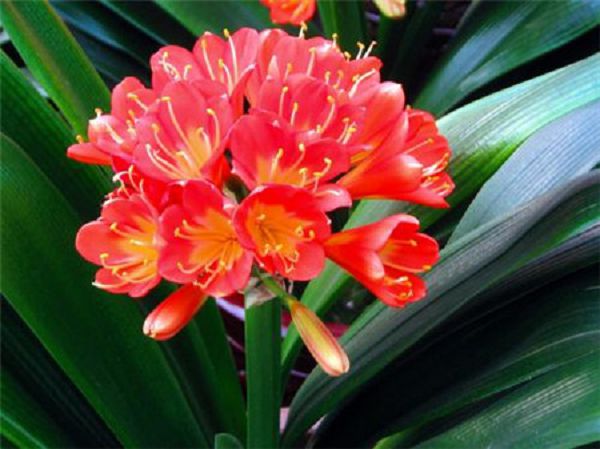Key points of Spring maintenance of Flower Magnolia
The soft sunshine and suitable temperature in spring is the best time for the flower growth of Cymbidium. Timely maintenance of Cymbidium in spring is very important to the growth, development and bud blooming in the same year and beyond.
Out of the room at the right time: the flower orchid that overwinters indoors should be moved to outdoor maintenance as the spring temperature picks up. The appropriate time to leave the room is generally around Ching Ming Festival in the temperate zone and about half a month in the cold area.
You can also get out of the room when the temperature is above 15 ℃. Windows should be opened for ventilation 1 and 2 days before leaving the room, and after leaving the room, the leeward and semi-shade should be placed first. After gradually adapting to the external environment, it should be moved to the sunny and ventilated place to fully receive the light.
Flower pot change ramet: the pot change time of adult gentleman orchids is generally carried out after flowering in spring, and plants that do not bloom in spring can change pots when they come out of the room. After depotting, the persistent soil and withered roots were removed and replaced with new culture soil to increase nutrients and permeability. The stereotyped plants are still cultivated in the original pot, while the growing plants are cultivated in a larger pot.
If there are tillering buds at the base of the plant, there are 3-4 leaves and the plant height is more than 10 cm, it should be combined with changing pots. Those who can take root are cut off from the mother plant with a sterilized knife, those who cannot take root are broken off by hand, and the wound is coated with sulfur powder or plant ash for antiseptic. The single plant with root is planted in a small basin, and those without root are cultivated with fine sand first, and then maintained in the basin after rooting.
Flower watering and fertilization: due to the rising temperature in spring and the plant entering the initial stage of growth, the water demand is increasing day by day, the number of watering and the amount of water should be from less to more, but to keep the basin soil moist. After the slow growth in winter, there are few nutrients in the body, especially after arrows and flowering, its nutrients are exhausted, so it is necessary to supplement nutrients timely and appropriately to meet the requirements of the growth and development of flowers in spring.
In spring, the plant is in the stage of new leaves and leaf length and width, and nitrogen fertilizer should be the main fertilizer. The rarefied liquid fertilizer is usually applied about 10 days after leaving the room, and the concentration is flexibly controlled according to the growth and temperature. If the compound fertilizer should be applied on the edge of the basin, the quantity should be less rather than more.
Promoting buds and promoting flowers: gentleman orchids with the habit of pulling arrows in late winter and early spring and blooming in early spring, in order to avoid arrows entrapment and affect flowering due to low temperature at this time, the indoor temperature should be increased 2-3 weeks before arrow drawing, and the amount of water should be increased, and liquid fertilizer should be applied once a day in 7-10 days or compound fertilizer dominated by phosphorus and potassium once a month.
In addition, 20 ℃ ~ 25 ℃ water can be used to irrigate the soil, and 25 ℃ water can be sprayed on the leaf surface to keep the indoor temperature at 10 ℃ ~ 15 ℃ as far as possible, which can promote the plant to shoot and bud quickly and blossom in time. As soon as the flower unfolds, it is necessary to water less, stop fertilizing, and move the plant to a low temperature place to prolong the viewing time.
Flowers control diseases and pests: with the rise of temperature, diseases and pests in the dormant period begin to spread, invade the plant and affect its growth and development. 0.3-0.5 Baume-sulfur mixture can be used to spray plant leaves and bulbs once every 10 days for 2 or 3 times in a row, which can not only prevent diseases, but also kill overwintering pests.
Related
- Is the orchid suitable for indoor use? Is it good for the body?
- How to prevent the empty root of orchids?
- What to do after the crab claw orchid is withered?
- Why are the leaves of orchids always yellow? Fertilizing and watering.
- Can the root of the gentleman orchid be saved if it is rotten?
- Diagnosis and treatment of cotton-blowing beetle insects in Cymbidium
- There is a way for a gentleman's orchid to rot.
- What is the most suitable temperature and humidity for the orchid?
- How to raise a gentleman's orchid? Cultivation techniques of Cymbidium
- How to prepare the nutritive soil for the cultivation of Cymbidium



